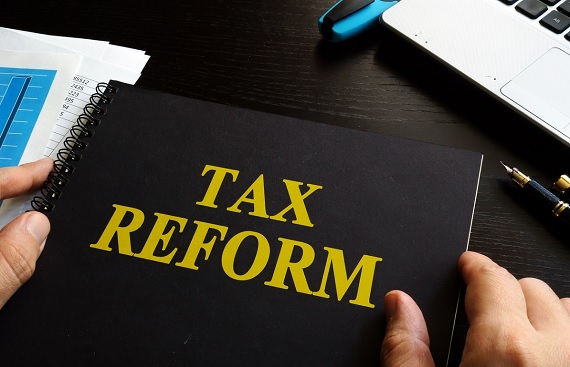Budget 2025: GTRI Urges Higher I-T Exemption and Tax Reforms
By
siliconindia | Tuesday, 21 January 2025, 11:04:47 AM IST

As the Union Budget 2025 approaches, the Global Trade Research Initiative (GTRI) has called for significant reforms to India's income tax system, recommending an increase in the exemption threshold to Rs 5.7 lakh, along with a simplification of the Tax Deducted at Source (TDS) system and equalisation of tax treatment for bank deposits and equities. GTRI suggested that the exemption threshold under the income tax should be increased from the current Rs 2.5 lakh to Rs 5.7 lakh. The think tank argued that the exemption threshold has not changed since 2014, when inflation is increasing every year. According to GTRI, the purchasing power of Rs 2.5 lakh in 2014 would be just Rs 1.4 lakh today considering the average annual inflation rate of 5.7%. By adjusting for inflation, the exemption threshold should be raised to Rs 5.7 lakh, which would ensure that tax levels remain consistent with the standards from 2014.
"Many lower-income professionals, such as drivers and multi-tasking staff, could be spared from filing tax returns altogether if the threshold were raised", said GTRI. It also stated that the minimum wage for skilled workers in Delhi is approximately Rs 21,917 per month, summing up to about Rs 2.63 lakh annually, meaning that most of the low-income workers would stand to gain with a revision in the tax-exemption threshold. It was co-authored by JB Mohapatra, the former Chairman of the Central Board of Direct Taxes, and Ajay Srivastava, founder of GTRI. The report suggested that the middle-income taxpayers face stress, and said that the Union Budget 2025 forms a good opportunity to recalibrate the country's direct tax system to meet the current economic needs. Adjusting the tax slabs and exemptions according to inflation would not only ease the burden of taxes for middle-income families but also give them more spending power.
Aside from adjusting the exemption threshold, GTRI also suggested the increase of several allowances and exemptions indexed to inflation. For example, the Rs 10,000 deduction on the interest of the savings account is now worth nothing more than Rs 5,000 since its inception in 2013 due to inflation. GTRI proposed that the limit be raised to Rs 19,450 by 2025. Similarly, the Rs 1.5 lakh deduction for life insurance premiums, provident fund contributions, or superannuation fund payments, last revised in 2015, now holds an equivalent value of just Rs 83,000. GTRI suggested that this deduction be increased to Rs 2.6 lakh to ensure it is reflective of current economic conditions. The Rs 25,000 medical insurance premium allowance, last changed in 2016, has seen its value slip to Rs 14,750 in today's money. GTRI would raise this limit to Rs 41,000 by 2025 to account for inflation.
Another recommendation made was to simplify the TDS, which has gained complexity over the years. Introduced in 1961, the TDS at that time had four categories: salary, interest on securities, dividend, and payment to contractors. However, it has grown so much today as the TDS framework has 40 categories and 13 versions of Tax Collected at Source (TCS) with most revenues collected from very few sources, such as salary, professional services, rent, and payment to non-residents. GTRI argued that the current TDS framework makes compliance complicated for businesses and individuals as the rates and thresholds vary. "The government may consider removing TDS for lesser categories. With digitization and interconnected government databases, simplifying the TDS rules can ease business operations and enhance overall efficiency", said GTRI.
Apart from the change in income tax exemptions and TDS simplification, GTRI also demanded that the tax treatment of bank deposits and capital market gains be equalized. The long-term capital gains on equities held for over one year are taxed at 12.5%, while the interest earned on fixed deposits is taxed at the applicable tax slab of the individual, which can be as high as 30%. The disparate treatment of FD and equity in taxes has seen several households choose the former over FD. GTRI recommended that FD interest income for deposits of 365 days plus is subject to tax of no more than 12.5%, like equities. That way, both FD and equity will receive uniform tax treatment that can bring forth household savings into FD.
"The idea of a think tank is to be a fair tax system for individuals and the economy as a whole", said the founder of the think tank, Ajay Srivastava. "Inflation is a major concern for everyone". He added that these reforms will encourage savings, reduce tax disparities, and foster economic growth by raising tax exemptions to match inflation, reclassifying F&O as speculative activity, and equalizing the tax treatment for bank deposits and equities. In such a scenario where India's tax system is getting pressured with growing inflation and shifting economic climate, the suggestions made by GTRI seem to maintain the fine line between offering relief to taxpayers while ensuring the country's tax collection mechanism is effective. Coming in time, just before the government begins preparation for the next Union Budget, these proposals form a pragmatic agenda of tax reform for the millions of taxpayers of this nation.



.jpg)